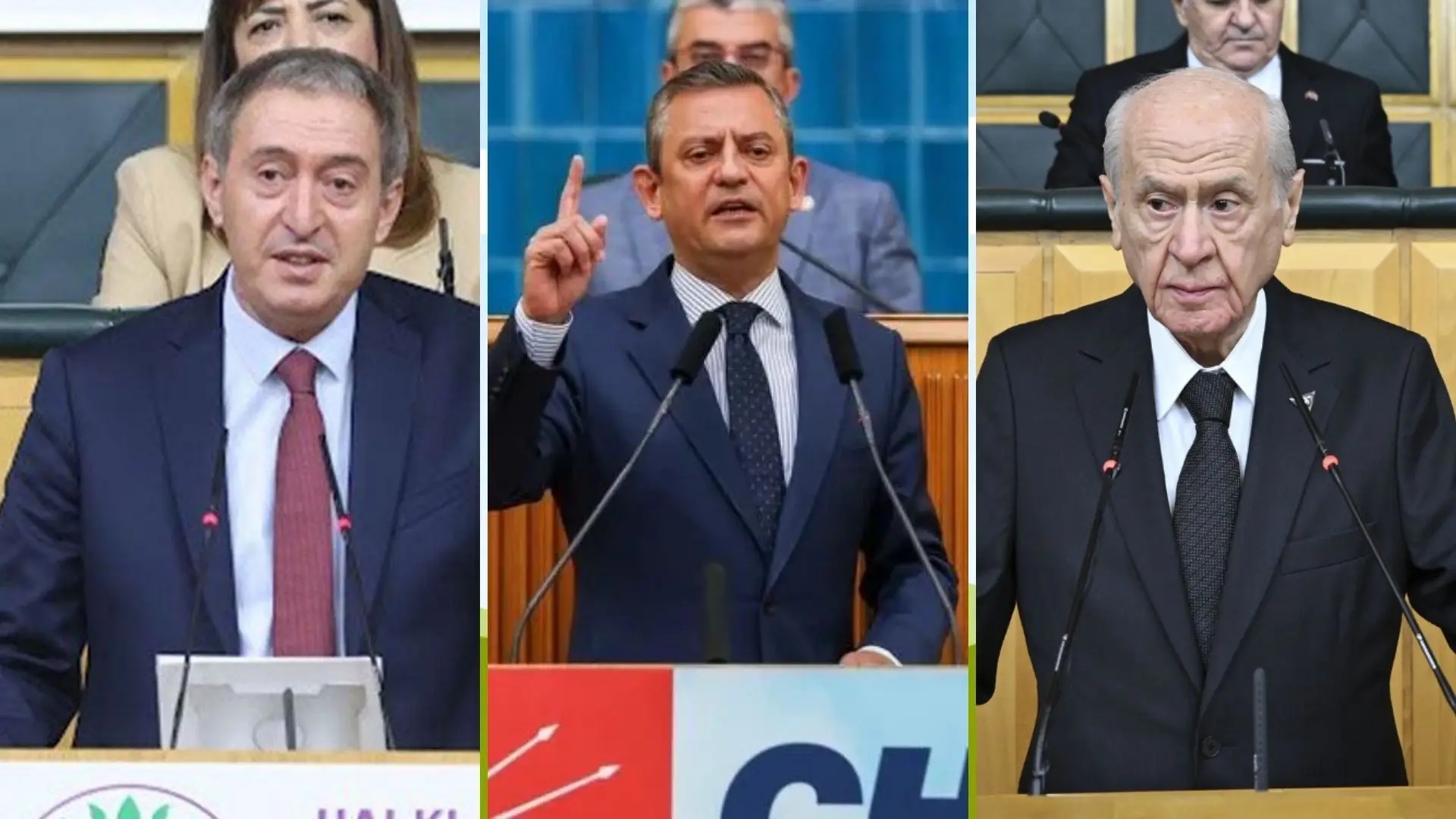Mümtaz'er Türköne wrote: MHP-CHP-DEM line

MHP leader Devlet Bahçeli revived the Alevi initiative in a truly comprehensive manner in his group speech today. His words demonstrate respect for our citizens who adhere to the Alevi faith and directly for the Alevi faith. His language is meticulous, modest, and constructive. His application of the same principle is also significant. Granting the status of cemevis as places of worship will resolve the constitutional issue of equality between Alevi citizens and the state. Ultimately, no one will impose anything, and Alevis will determine their own beliefs and rituals. Subtle schemes such as linking cemevis to the Directorate of Religious Affairs will be disregarded.
If Bahçeli continues his insistence on the resolution process and the Alevi initiative, Türkiye will be on the path to solving a very important problem.
How much easier things become when the one who is expected to be an obstacle is the architect of the solution.
Let's look at the solution and actors that follow this logic:
The MHP has driven a wedge into the heart of Türkiye in the name of the peace process, and its stance will remain unchanged. The AK Party is nowhere to be seen; when it does, no surprises are expected with its consistent two-steps-forward, one-step-back policy. The İYİ Party, clinging to its antagonism with the MHP, is performing less than expected in opposition. The Zafer Party appears to be successful in making money from flies with initiatives that far exceed its size.
There are two axes on which political agendas are situated. One is the peace process, the other is the issue of democracy and the rule of law, which has been burdened by the CHP's operations to purge the opposition. These two issues sometimes intersect on the CHP-DEM line, and sometimes they are subject to artificial maneuvers to exclude each other.
In order to understand what is happening and predict what might happen, it is necessary to follow this increasingly intense line between the CHP and DEM.
In the first decade of the new century, Kurdish politics adopted a strategy of becoming a party of Turkey, with parties changing names and emblems. This strategy found immediate response during periods when peace efforts were prominent; during periods of escalating violence, it was marginalized despite garnering only 10% of the vote.
Today, DEM has truly become a party of Turkey. The climate it has fostered through the resolution process is the primary reason for this outcome. Behind it lies the efforts of Kurdish politicians, the Kurdish community's inclination in this direction, and its desire to integrate with Turkey. DEM's efforts to become the party of Turkey were the most powerful driving force behind voluntary integration, that is, integration, in Kurdish politics. Far from obstructing it, the MHP's will and stance, in response to the same effort, shouldered and propelled the process, demonstrate the fundamental dynamic of the extraordinarily optimistic outlook we have reached today, together with DEM.
Pervin Buldan's complaints about the media, relayed by Öcalan, can be interpreted as one of the DEM's most assertive poses as a Turkish party. This complaint has two audiences: one directly pro-government media, via the ruling party, and the other, the well-established nationalist media within the CHP. Öcalan and the DEM Party, who can address both and file complaints, should now be seen as actors engaged in addressing the dark corners of daily politics.
Like all opposition parties, DEM complains about the government's pro-government media, and even targets the opposition's own media. I interpret this effort not as an attack on freedom of the press and freedom of expression, but as a traditionally tinged complaint from a party that has understood and adapted to the rules of the dirty media swamp.
The CHP cannot escape the jungle it's struggling in without the DEM's help. This is another fundamental dynamic that has made DEM a party for Türkiye.
If the government succeeds in eliminating the main opposition party through judicial operations, there will be no democracy or rule of law left in Türkiye, of which DEM is now a part. In other words, DEM's existence as a Turkish party will be meaningless. Therefore, DEM must support the CHP to preserve democracy.
Both sides are instinctively aware of this situation. The CHP is doing its part by joining the commission and promoting Demirtaş and Yüksekdağ, iconic figures in Kurdish politics. The DEM, like the MHP, is defending the CHP's rights because it knows that a solution will not work once the democratic order and the rule of law are destroyed.
Tuncer Bakırhan's criticism of the CHP's "Demirtaş obsession" reveals the contradictions of the DEM's Turkish politics, with all its dilemmas. Internal party issues are being managed by spilling over into general Turkish politics.
Not only Kurdish politicians, but also Kurdish society, with their intensely engaged agendas, feed this dynamic as an integral, inseparable part of Turkish politics. The opposite of this is the alternative of seeking the future in a completely different world outside Türkiye, with doors opened by violent means. No one is considering this alternative.
When those who disperse like smoke, those preoccupied with fleeting agendas and scandals stop what they're doing for a moment and focus on the DEM's potential as a party for Turkey, their faith in a solution will be strengthened. Not Syria, not a parliamentary committee, not the PKK's disarmament and return home procedure. Türkiye has a party like the DEM, one that sets general policy and moves forward in accordance with its dynamics. Even when it regulates the media, it is part of the prevailing policy.
Our fate is being determined not behind closed doors, but before our eyes on the political stage.
Medyascope





